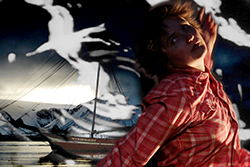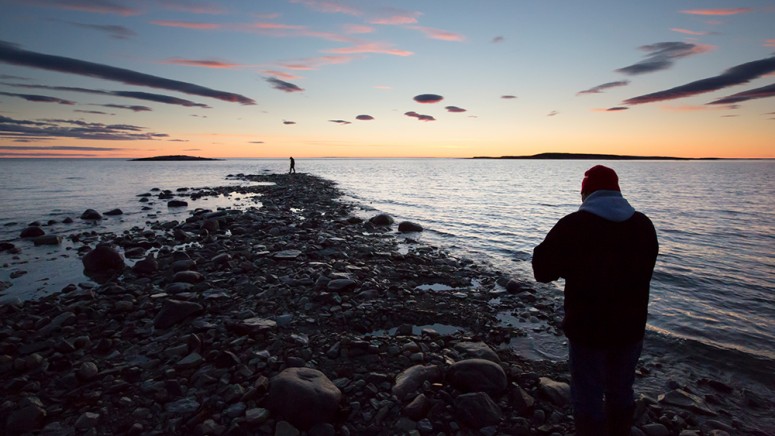What does Culture have to do with Climate Change?
The scientific evidence tells us that the global climate system is changing at an unprecedented rate and in increasingly destructive, self-accelerating ways. But this alarming information alone can be bewildering without narratives and expressions that connect it to our lives and our communities, to our fears and our aspirations. Creating those connections is the work of culture.
A cultural response to the problem of climate change harnesses the powers of creative insight, human emotions, and understanding to effect change. Collaborating with scientists and confronting the facts around global climate change, the artists participating in Carbon 14: Climate is Culture are all responding to different aspects of this climate challenge in poignant, nuanced, subversive, often humorous, and always passionately human ways. The exhibition features 13 art installations, including seven new commissions. Subjects include explorations of a changing Arctic; the health of the oceans; biodiversity and extinction; sustainability and new, clean technologies. Central are questions of politics, economics, and ethics.
Climate change is a difficult subject, open to misrepresentation, denial and confusion, yet it cannot be ignored. Nor can we talk about it in isolation as a purely scientific matter. While climate change presents as an environmental problem, it is—as this exhibition insists—fundamentally a cultural one.
Meaningful change must happen first at the level of culture—how we choose to live, and what we choose to do. The questions raised by the climate crisis are about innovation, economics, politics, and essentially, ethics—our responsibility to future generations and the common good—and these are all questions of culture.
A Cultural Shift
What we do now matters on a scale that previous generations could never imagine and will affect future generations in ways we are only beginning to understand. Mitigating climate change will require both the development and delivery of clean and renewable energy sources, and changes in our behaviours and patterns of consumption to reduce our dependence upon fossil fuels.
We need to embrace change and unleash the power of our creativity, ingenuity, innovation, and ability to cooperate—in short, to demonstrate our humanity. We have a unique opportunity to make all the difference. The time is now and together we can.
Claire Sykes
Curator and Programming Director
Cape Farewell Foundation
Some Acknowledgments
That last point resonates: the realization that things do not, nor will they, happen on their own, nor through the actions of isolated individuals. The kind of change we need requires shared understanding and shared effort on a huge scale. It requires global teamwork.
Cape Farewell demonstrates this time and again—it is fundamentally about partnerships and collaborations, bringing different skill sets together to collectively realize great things. The remarkable cross-discipline and cross-cultural cooperation and co-creation that make this project work are powerful examples of what is possible, and of what is needed.
It has been my privilege to be a part of this terrific team. Likewise, I want to take this opportunity to acknowledge the other members. I want, first and foremost, to thank all the artists and informers who joined us for the Carbon 14 Workshop two years ago. Their response and the ensuing collaborations have been truly inspiring, and it has been a privilege to be able to work with, and get to know, such an amazingly talented group of people. This project is nothing without them.
I must also thank David Buckland for his vision, and faith in me, to take on this project; Katherine Bruce, our Development Director, whose work has been invaluable on all levels; the Cape Farewell Foundation Board, and Carolyn Taylor in particular, for bringing me on board in the first place.
The Carbon 14: Climate is Culture exhibition and festival is indeed the product of a remarkable team. I want to thank Dave Ireland and Steven Laurie and the entire team at the ROM for courageously shepherding this through. Likewise, I must sincerely thank our festival partners, especially Franco Boni (The Theatre Centre), Sharon Switzer (Pattison Onestop), Megan Louris, (Walter and Duncan Gordon Foundation), and Ian Garrett (York University) for their enthusiasm and engagement; Ian Mauro for his significant contribution to the exhibition’s core (as main author and project lead for the Arctic and Atlantic content) and to our Day of Dialogue focusing on Northern issues; Justin Aitcheson and Lucas Mulder for their excellent graphic design and web development work; Sheila Murray and Susana Reisman for leading the Documentation Project; Rachel Spence for her support; and Ned Dickens for his first-rate editing skills.











